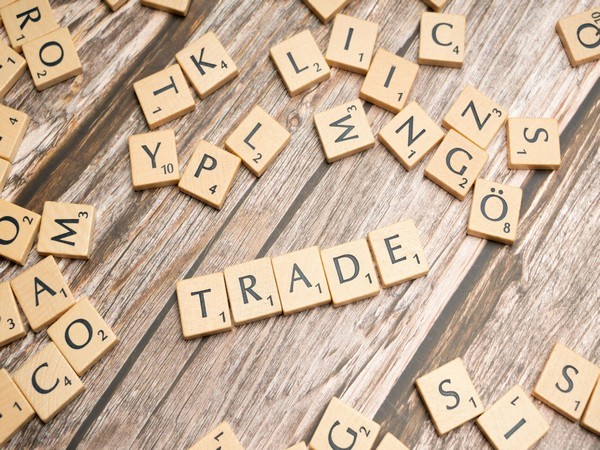
BRUSSELS: Concerns have been raised within the European Union regarding the need for balanced trade relations with China, emphasizing that economic growth should not come at the expense of European industries. A call has been made for adherence to global trade rules, ensuring that multilateral commitments align with fair market practices. Key issues such as subsidies, barriers to market access, restrictions on critical mineral exports, and trade diversion have been highlighted as areas requiring urgent attention.
During discussions at an international economic summit, the necessity of easing controls on rare earth minerals and magnets was underscored, given their significant impact on European industries. The broader objective remains to establish a more equitable trade environment, where reciprocal access and fair investment conditions contribute to healthy competition in global markets.
The EU-China trade dispute has intensified amid Donald Trump’s return to the White House, exposing both to overlapping tariffs as the US pressures firms to shift production domestically. EU trade chief Maros Sefcovic stressed the importance of transparency and stable supplies, particularly for magnets, now restricted by China’s export policies.
While the EU remains engaged with China on bilateral and global issues, Sefcovic underscored the need to resolve trade imbalances, warning that strained cooperation affects industries, citizens, and the global economy. China, controlling 90% of rare earth processing, imposed export curbs in April in response to Trump’s tariffs. The EU seeks a balanced relationship to safeguard its industries and ensure fair economic competition.
Rare earths comprise 17 elements. On April 4, Beijing tightened export controls on seven—dysprosium, gadolinium, lutetium, samarium, scandium, terbium, and yttrium—along with several rare earth magnets. This move followed Trump’s tariff announcement, requiring export licenses. European firms are urging China to simplify and accelerate approvals. EU trade chief Maros Sefcovic pressed Wang to distinguish between minerals with military applications and magnets largely used for civilian industries.
Another EU concern is trade diversion from Trump’s tariffs, as Brussels worries that cheap Chinese goods could flood European ports, undermining local manufacturers. On Thursday, the commission released initial findings from a monitoring tool launched in April, revealing significant suspected rerouting of discounted Chinese exports.
By late May, the European Union witnessed a sharp surge in imports across various industries, raising concerns about trade imbalances. Light-emitting diodes saw a 156 percent jump in shipments, with prices tumbling by 65 percent. Industrial robot imports skyrocketed by 315 percent, coupled with a 35 percent price drop. The most striking increase was in steel alloy bars and rods, which surged over 1,000 percent while costs plunged 86 percent. While these numbers are not exclusively tied to China, its exports are likely a major factor, given the impact of U.S. tariffs.
Maria Martin-Prat, the EU’s deputy trade chief, issued a stern warning to Beijing, urging it to address European grievances or risk facing retaliatory actions. She pointed to the bloc’s expanding toolkit of autonomous trade measures, signalling a willingness to act if needed. As the EU prepares for a leaders’ summit in July, Martin-Prat emphasized the necessity of structural reforms in China’s economy. The EU is pushing for improvements in market access, particularly in strategic sectors like agriculture and cosmetics. With trade tensions escalating, Brussels seeks a more balanced relationship that ensures fair competition while mitigating risks posed by China’s export policies and the broader global economic landscape.
The European Union has warned Beijing that its policies are eroding confidence in the global trade system that China has long benefited from. Maria Martin-Prat emphasized that restrictive actions are driving countries away from openness and fair competition. During a panel discussion, British Trade Secretary Jonathan Reynolds echoed concerns, calling China’s non-market practices a major economic security threat.
Reynolds pointed to persistent state-led subsidies and industrial overcapacity as ongoing issues, arguing that such tactics distort fair trade and weaken competition. He noted that these practices are increasing, creating further imbalance in global markets. Without addressing these concerns, Europe risks losing its ability to sustain critical industries and key technologies domestically. The EU is urging Beijing to acknowledge and address these challenges before they further undermine trust and stability in the international economic system. The upcoming leaders’ summit presents an opportunity for direct engagement on these pressing trade concerns.
British Trade Secretary Jonathan Reynolds acknowledged the disruptive impact of global trade on U.S. politics, questioning whether Washington’s policies are a reaction to economic shifts or a driving force behind them. Meanwhile, Ilse Henne, CEO of Thyssenkrupp’s materials services division, stressed the urgent need for stronger protections against cheap Chinese steel imports, warning that European industries are struggling to stay afloat.
The EU’s concerns have intensified following the U.S. decision to double tariffs on steel imports to 50%, a move criticized by Brussels as detrimental to global trade. European steelmakers are facing mounting pressure, with the sector experiencing a downturn due to high energy costs and declining demand.
As the EU prepares for upcoming trade negotiations, policymakers are exploring defensive measures to safeguard domestic industries while balancing economic cooperation with China. The steel industry’s future hinges on decisive action to ensure fair competition and market stability.